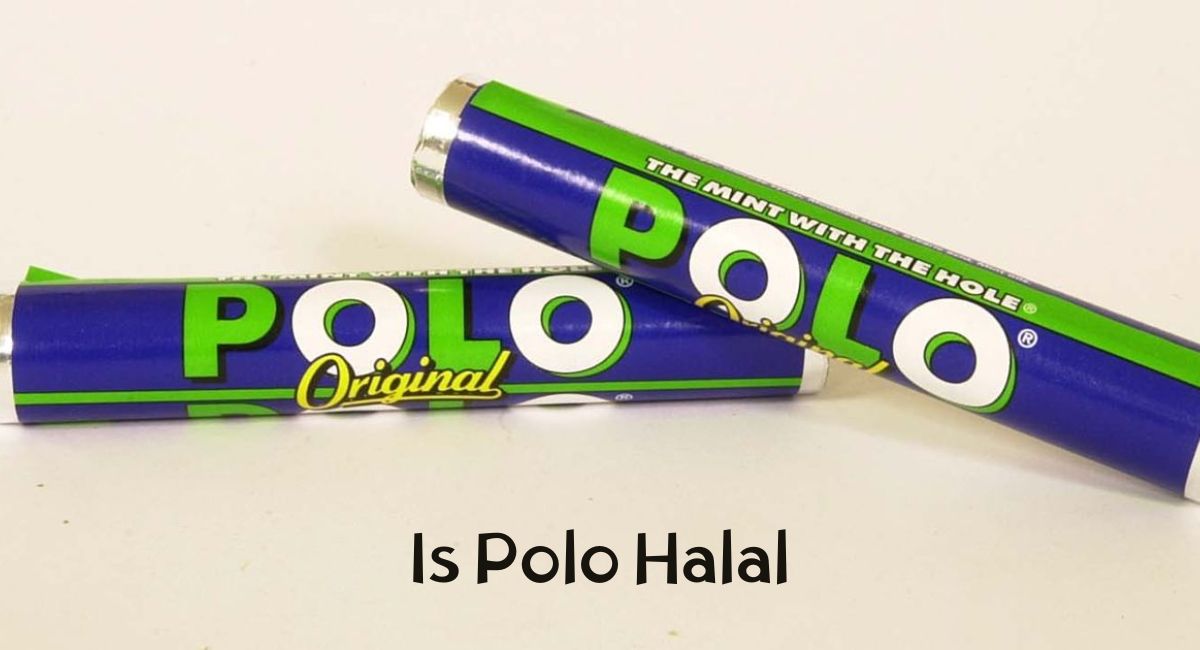Polo Mints are a popular brand of breath mints enjoyed by people around the world. When it comes to dietary restrictions and considerations, one important question that often arises is whether Polo Mints are halal.
To determine whether Polo Mints are halal, it is essential to examine the ingredients and the manufacturing process involved in their production. By doing so, we can gain a better understanding of whether these refreshing mints align with the dietary requirements of Muslims who follow halal guidelines.
About Polo
Polo is a brand of breath mint, whose defining feature is the hole in the middle. The peppermint-flavored Polo was first manufactured in the United Kingdom in 1948. The name may derive from “polar”, referencing the cool, fresh taste of the mint.
Polo was originally developed in 1939 and were designed to be ‘life saving’ during World War Two, but their introduction to the market was delayed until 1947 due to the onset of the war.
The mints are made from sugar and glucose, flavored with high-quality peppermint oil that is specially selected to give a smooth, clean, and fresh flavor. The mints are shaped under immense pressure, roughly equivalent to two elephants jumping on them, to form their distinctive ring shape.
Polo Mints were conceived by the confectionery legend, George Harris, who was also behind some of Rowntree’s biggest brands in the 1930s including KitKat, Smarties, Aero, Black Magic, and Dairy Box.
The hollow Polo mint design was actually inspired by the popular Life Savers mint, which was produced in 1912. The Life Savers mint got its name from the then-popular, Life Savers rings that were used on boats.
Polo is more than just a mint, it’s seen as a symbol of optimism and its unique design is intended to invigorate both your mouth and mind. It is refreshingly light and is meant to help keep your spirits up and maintain an optimistic attitude.
It is worth mentioning that Polo mints are enjoyed worldwide, including in countries like Singapore, India, and the United Kingdom. The brand has established itself as an iconic confectionery choice with its distinct flavor and the presence of the famous hole in the center.
Polo Flavors and Varieties
Polo Mints come in a variety of flavors and varieties. The original and most recognized flavor is peppermint, which has been the defining taste since Polo was first manufactured in 1948.
Over the years, a number of variations have been introduced:
- Polo Holes: This was an experiment by Nestlé where they produced mints in the shape and size of the hole in the middle of the Original Polo. They carried the original Polo flavor.
- Polo Fruits: These are fruit-flavored Polo mints that come in a variety of flavors including orange, lemon, strawberry, lime, and blackcurrant. Despite being less celebrated than the original Polo Mint, Polo Fruits have gained a cult status among consumers.
- Other Varieties: Polo mints have been sold in a variety of flavors including spearmint, fruit, polo gummies, sugar-free, and Mini Strong Polos which are smaller in size but have a strong minty flavor. Recently, Polo has even introduced a flavor inspired by Paan, a popular mouth freshener and digestive aid in India.
| Polo Variants | Description | Availability |
|---|---|---|
| Spearmint | Polos with a strong spearmint flavor and aroma | Currently available |
| Fruit | Boiled sweets with multiple fruit flavors (strawberry, blackcurrant, orange, lemon, lime) | Currently available |
| Polo Gummies | Fruit-flavored soft gummy sweets in the shape of Polos | Currently available |
| Sugar-free | Sugar-free version of the original Polo containing sorbitol | Currently available |
| Mini Polos | Small Polos with a strong “Super Mint” minty flavor | Currently available |
| Smoothies | Creamy sweets with flavors like blackcurrant, sunshine fruits, and strawberry | Currently available |
| Citrus Sharp | Lemon and lime flavored Polos (discontinued in the UK) | Discontinued in the UK |
| Butter Mint Polos | Mint-flavored butterscotch Polos | Currently available |
| Strong/Extra Strong | Intensely hot Polos (discontinued in the UK) | Discontinued in the UK |
| Ice | Polos with a cooler mint taste, wrapped in a shiny blue wrapper | Currently available |
| Paan Flavored | Polos with a paan flavor, available in India since 2020 | Currently available in India |
| Mint O Fruit | Raspberry Mint, Blackcurrant Mint, Peppermint, Lime Mint, and Cherry Mint flavored Polos | Available in Indonesia and some UK Poundland stores |
| Holes | Plastic tube filled with small mints approximately the size of a Polo mint hole | Currently available |
| Rowntree Experiments | Lemon, Orange, and Tropical Fruit variations were briefly introduced in the 1980s | Discontinued |
| Globes | Small capsules filled with mint-flavored liquid | Discontinued |
Please note that the availability mentioned may be subject to change or vary in specific regions.
Polo Ingredients
The ingredients of Polo mints include:
- Sugar
- Glucose Syrup
- Modified Starch
- Stearic Acid
- Mint Oils
- Sorbitol
- Magnesium Stearate
These ingredients contribute to the texture and flavor of the mints. However, it is important to note that specific ingredient compositions and formulations may vary depending on the region and specific product variations.
Halal/Haram Status of Ingredients
- Sugar: Sugar is a common ingredient in confectionery products, including Polo mints. It provides sweetness and helps enhance the flavor of the mints.
- Glucose Syrup: Glucose syrup is a sweetener made from the hydrolysis of starch. It adds sweetness to the mints and contributes to their texture.
- Modified Starch: Modified starch is a food additive used for various purposes, such as thickening, stabilizing, and improving texture. In Polo mints, modified starch may be used to enhance the consistency and mouthfeel of the mints.
- Stearic Acid: Stearic acid is a saturated fatty acid derived from vegetable sources. It is used in food production as an emulsifier and stabilizer. In Polo mints, stearic acid of vegetable origin may be added to help maintain the shape and texture of the mints.
- Mint Oils: Mint oils, specifically high-quality peppermint oil, are used to flavor Polo mints. Peppermint oil provides the characteristic minty taste and gives the mints a smooth, clean, and fresh flavor.
- Sorbitol: Sorbitol is a sugar alcohol commonly used as a sweetener in sugar-free or low-sugar products. It is added to some variations of Polo mints as an alternative to regular sugar, providing sweetness while reducing the sugar content.
- Magnesium Stearate: Magnesium stearate is a commonly used food additive that serves as an anti-caking agent and lubricant. It is often added to improve the flow and prevent clumping of powdered ingredients during production.
All of the ingredients mention above are usually considered halal in Islam. However, the halal or haram status of ingredients can vary based on their specific sources and the manufacturing processes involved. It is recommended to consult with the relevant religious authorities or seek confirmation from the manufacturer to ensure accurate information regarding the halal status of specific products or ingredients.
Is Polo Halal?
Based on their ingredients, Polo mints do not contain any haram (forbidden) components. However, it’s important to note that while Polo mints do not contain any haram ingredients, they are not halal certified.
Without halal certification, it cannot be guaranteed that the production of Polo mints adheres to the specific guidelines and standards required for halal products. Some individuals who strictly follow halal certification may prefer to opt for products that have undergone the halal certification process, as it provides them with assurance and confidence in the halal status of the product.
Therefore, while Polo mints may generally be considered halal based on their ingredients, individuals who require halal certification may choose to seek halal-certified alternatives to ensure that their dietary requirements are met.
Frequently Asked Questions
Is polo mint good for health?
While Polo mints are not necessarily ‘bad’ for your health, they should be consumed in moderation due to their high sugar content and potential effects on dental health. The health benefits associated with mint are more likely to be obtained from consuming the herb in its natural form, rather than from consuming mint-flavored candies.
Is polo mint good for sore throat?
Polo mints can help keep the throat moist and provide some relief from a sore throat by stimulating saliva production. Furthermore, Polo mints contain mint, and mint is often recommended for common winter ailments including sore throats and coughs. The mint family, which includes herbs like peppermint and spearmint, is known for its medicinal properties and can be beneficial during the cold-and-cough season. However, it’s important to note that while Polo mints may provide some relief, they are not a substitute for medical treatment if you have a severe or persistent sore throat.
Why do polo mints have holes?
The design of Polo mints was reportedly inspired by the American brand Life Savers, which are also mints with a hole in the middle. The idea was to create something similar in the UK. The name “Polo” was chosen because it was derived from “Polar” and was thought to imply the freshness of the mint.
Do polos contain gelatin?
No, Polo mints do not contain gelatin. There are several varieties of Polo mints, including Original, Spearmint, Fruit, and Sugar-free, all of which are vegan-friendly and do not contain animal products or by-products, such as gelatin.








